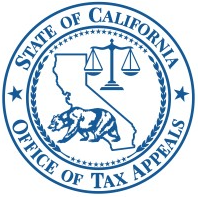
The California Office of Tax Appeals (OTA) recently issued two opinions addressing the burden of proof taxpayers must meet to substantiate entitlement to California’s research and development (R&D) tax credit for qualified expenditures under California Revenue and Taxation Code section 23609. In both opinions, the OTA ruled in favor of the California Franchise Tax Board, holding each taxpayer failed to meet its respective burden to substantiate the R&D tax credit claimed.
Generally, to retain the claimed R&D tax credit for certain expenditures, taxpayers must retain sufficiently detailed records to substantiate the following four-part test: (1) the expenditures must be eligible to be treated as research expenses under Internal Revenue Code section 174; (2) the research must be undertaken for the purpose of discovering information that is technological in nature; (3) the application of the research must be intended to be useful in the development of a new or improved business component of the taxpayer; and (4) substantially all of the research activities must constitute elements of a process of experimentation for a qualified purpose. Because tax credits are considered a matter of legislative grace, statutes allowing tax credits are strictly construed against the taxpayer, and the taxpayer has the burden to establish it is entitled to an R&D tax credit.
In Appeal of First Solar, Inc., 2023-OTA-532P (Sept. 19, 2023), the OTA held in a precedential opinion that the taxpayer failed to meet its burden of proof for substantiating its claimed R&D credit by providing the following supporting evidence, as described by the OTA: (1) the taxpayer’s audited financial statements, which contained a total line item for R&D expenses, but did not include the audit working papers or any document itemizing the expenses that made up the total amount; (2) a list of 15 patent applications the taxpayer submitted; (3) documents relating to an IRS audit of the taxpayer for a previous tax year (the documents did not indicate the IRS examined the R&D tax credit); and (4) testimony by the taxpayer’s co-founder and Chief Technology Officer.
In Appeal of Electronic Data Systems Corporation & Subsidiaries, 2023-OTA-540 (Sept. 20, 2023), the OTA held in a non-precedential opinion that the taxpayer failed to meet its burden of proof for substantiating its claimed R&D tax credit by relying primarily on insufficient employee surveys developed after the conclusion of the research activities. The OTA determined the employee surveys submitted by the taxpayer failed to substantiate the taxpayer’s entitlement to the R&D tax credit for numerous reasons, including that the employees who completed the surveys lacked relevant legal experience, there was no evidence the employees completed the surveys impartially, the employees did not provide signed statements under penalty of perjury, and the surveys did not contain contemporaneous supporting documentation from when the taxpayer conducted the research activities.
These opinions by the OTA reinforce the principle that taxpayers should ensure they retain sufficient documentation regarding their R&D activities and expenditures to substantiate entitlement to California’s R&D tax credit. California’s R&D tax credit largely conforms to the federal R&D tax credit, and a lot of governing legal authority exists on the issue. Taxpayers should work closely with their internal and external advisors on establishing and enforcing proper document retention procedures to comply with applicable R&D tax credit substantiation requirements.
 SeeSALT Blog
SeeSALT Blog

